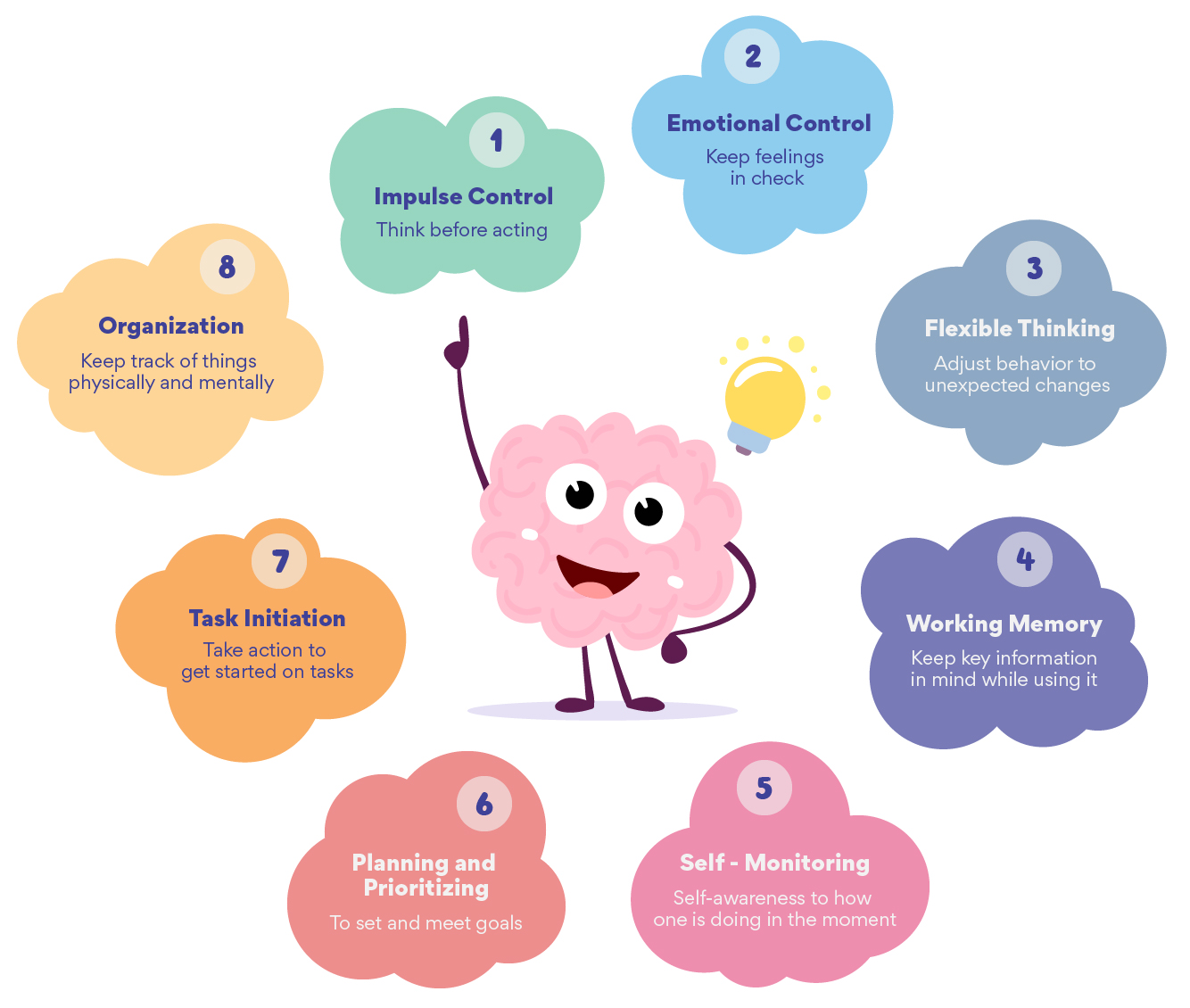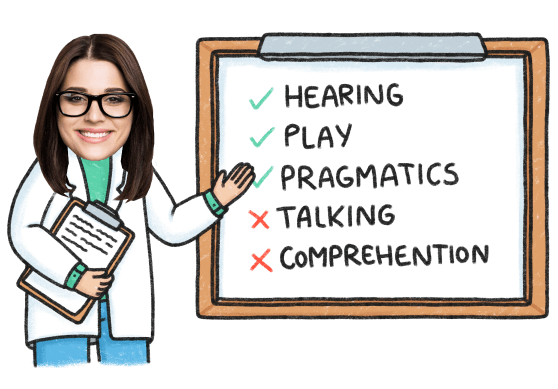How to Recognize Early Signs of Executive Functioning Disorder
Feb 6, 2022 When I first started practicing as a speech-language pathologist, the “hot topic” was Autism Spectrum Disorder. After practicing for 10+ years, the new disorder that is coming into focus is executive functioning disorder.
In This Article
I work full-time at a public high school. I can tell you that I get kids who have a weakness in executive functioning more times than not. These are the students who just can’t seem to get it together, who are very disorganized (at home and at school), and who struggle with basic concepts, like being on time.
This is one of my FAVORITE areas to address with students because, most of the time, adults just think they are being lazy teenagers. Uncovering the truth leads to an AHA! moment for the student and makes them feel validated and understood.
So what is executive functioning? What are some key signs? What can you do to help? Well . . . keep reading!
Boost Your Child’s Speech Development!
Improve language & communication skills with fun learning!

What is an Executive Functioning Disorder?
Executive functioning skills allow us to plan, organize, focus attention, remember multi-step directions, and remember instructions.
Up to 90% of children diagnosed with ADHD (Attention Deficit Hyperactivity Disorder) have a weakness in executive functioning (ASHA 2016). Children not diagnosed with ADHD can also show weaknesses in these areas.
Children and adults with executive functioning problems struggle to organize materials and set schedules. They misplace papers, reports, and other school materials. They might have similar problems keeping track of personal items or keeping their bedroom organized.
As you can see, this problem, if not treated, can progress and follow a child into their adult lives. This is why intervention and strategies are important to start as soon as possible.
Executive functioning skills begin to develop around the age of 2 and fully develop by the time we are 30-years-old (ASHA 2016).
The back of the brain is where you store information that is already learned. The front part of the brain is where you use this information to be socially effective and succeed in life.
This part of the brain has four major circuits involved in executive functioning:
1. The “what” circuit controls working memory, helping you execute plans, goals, and specific steps needed to complete a project;
2. The “when” circuit helps you organize the order in which you complete activities, and address timelines;
3. The “why” circuit controls emotions — what you think about, and how you feel;
4. The fourth “how” circuit controls self-awareness of your feelings and experiences.
When any of these circuits break down, there becomes a deficit – an executive functioning deficit.
Executive Dysfunction Causes
Physicians aren’t sure why some people have executive function disorder. Research indicates executive functions may be passed from parent to child, so a parent with EFD may have a child with EFD.
Executive dysfunctions may be the result of differences in the prefrontal cortex. A study found that people with disorders, diseases, or injuries that damage that area of the brain are more prone to difficulties with executive functioning (ASHA 2016).
Even though there is not a definitive reason as to “why,” most scientists agree that it has something to do with the frontal lobe/prefrontal cortex.
Diagnosing Executive Function Disorder (EFD)
An EFD evaluation typically begins with an exam or evaluation to rule out other conditions with similar symptoms.
Your primary care physician may then refer you to a specialist, like a child psychologist or pediatric neuropsychologist.
The specialist will consult previous medical records, and examine performance at school/work, and administer additional tests.
The most common EFD evaluation is the Behavior Rating Inventory of Executive Function (BRIEF), a written survey that kids/young adults, parents, and teachers complete to assess executive functioning. It consists of 86 questions designed to pinpoint the biggest area of difficulty.
EFD is often diagnosed during the transitions to 6th or 9th grade, when school structures and schedules change dramatically, and academic expectations increase.
Parents and teachers often don’t get why kids can’t work independently on an assignment, and assume they’ll “pick up” the necessary skills. It’s important to start helping kids with ADHD/EFD early, and to acknowledge the problems those disorders cause so that kids don’t feel stupid or lazy (attitudemag.com).
What Might Be Difficult
When a person is diagnosed with an executive functioning disorder by a speech-language pathologist, we see weaknesses in the following areas:
- Self-Awareness: commanding self-directed attention
- Self-Restraint: inhibiting yourself
- Non-Verbal Working Memory: holding things in your mind to guide behavior
- Verbal Working Memory: retaining internal speech
- Emotional: using words and images along with self-awareness to alter how you feel about things
- Self-Motivation: motivating yourself to do things when no outside consequences exist
- Planning and Problem-solving: finding new approaches and solutions
Treatment Options for Executive Functioning
When diagnosed with an EFD, your doctor may recommend several types of specialists for treatment.
These specialists may include:
- Speech-language Pathologists
- Psychologists
- Reading Tutors
- Occupational Therapists
Most specialists will recommend redesigning the environment to make those with EFD more successful.
With my students in high school, I organize their book bags by colored folders/binders for each subject. I also print out a calendar and have them put post-its on days where they know assignments are due.
We chunk information accordingly on additional post-its and they can rip them off and throw them away when a task gets completed (sense of accomplishment).
You can also implement the following changes to assist a person diagnosed with EFD in their home or school environments:
- Clock timers/computer timers
- Lists and journals
- Point systems (will work in the school setting)
- Sticky notes
- Signs/symbols/cards
Like any disorder/syndrome that is diagnosed, early intervention and treatment is important and critical.
If you or your child is struggling in any of the areas listed above, I encourage you to speak to your physician/pediatrician ASAP.
As always, please look at SpeechBlubs for more information and reach out to me if you would like clarification or more information regarding Executive Functioning Disorders.

